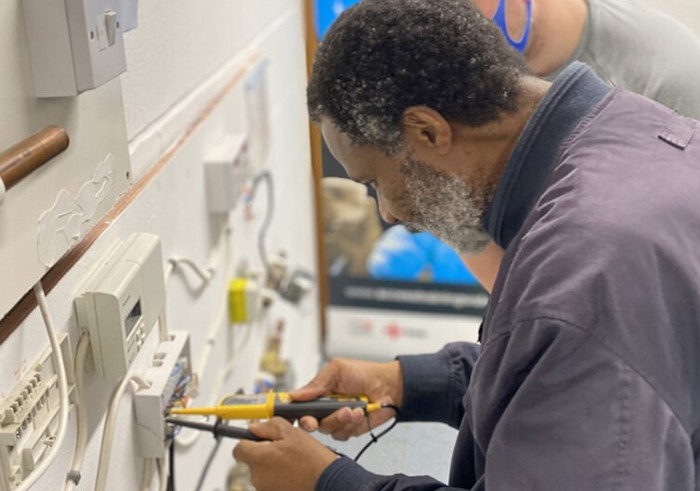If you are considering training to be a plumber or vocational training more generally, the news that the planned overhaul of the UK’s vocational educational system has come unstuck will pique your interest. Following the damning Wolf review of vocational courses, the minister of education, Michael Gove, promised a thorough overhaul of the system and the QCF (Qualifications and Credit Framework). The aim of this new framework was to:
- Set a country-wide standard for vocational training, ensuring the high standard of education across the UK;
- Establish levels and gradings across the vocational system to monitor progress and gauge achievement;
- Integrate the vocational system with the current academic system, allowing vocational courses a points system which would function as a comparable equivalent.
Unfortunately, for those considering training to become plumber, or establishing themselves into any sort of trade, these changes have foundered utterly and have folded a month before their due completion.
The issue with courses for those interested in training to be a plumber is the hundreds of courses out there which all function in different ways. This makes bringing them all up to a general standard and implementing a thorough, water-tight framework exceedingly difficult. In fact, the whole doomed QCF process has been described as “expensive spaghetti”!
This failure won’t make much difference to those training to be a plumber. Changes are yet to be made and very few training providers are ready for them when they are eventually implemented. They are unlikely to affect those currently training to become a plumber.
In the future, if you are thinking about training to be a plumber, you can expect a more thoroughly regulated system of vocational training with relative values and a clear framework. The industry qualifications you’ll earn, however, will stay the same.
These changes seem to be a fair way off still but, when they are implemented, Access Training are ready to make the change, ensuring quality and consistency across the vocational training courses we offer. If you’d like to find out more about training to be a plumber with industry experts, just take a look at the flexible and varied courses available on our website, or call our team on 0800 345 7492 today.
Whether you are a first-time property developer or a veteran, plumbing courses and other vocational courses can save you a lot of money when refurbishing your property. By learning hands-on skills you can save money not only on labour but also by ensuring work is carried out properly, to the correct time-scale and to a fair budget.
Plumbing courses can be taken at a number of different levels, so whether you only know a little or already know a lot, you can add to your skills. Essentially, for property developers, vocational and plumbing courses are an investment in skill. Over time, the savings you will make on labour and on will accumulate; you could soon stand to save an awful lot of money, especially if you see property development as a long term ‘career’.
The problem is, the property market is no longer what it once was. Property developers do not have unlimited funds to throw at a building and still see a return on their investment. This means that plumbing courses, and other practical courses, are more important than ever before. Being canny and in the know about the trades will allow you to make informed decisions about your overhaul of your properties.

Plumbing courses could also save you money if you are simply developing your own property. Renovating an old, tumbledown place can be a very cheap way of find your footing on the property ladder, but if you don’t know your way around the plumbing and fall prey to an unscrupulous plumber, it could be even more expensive then purchasing a brand new property.
To find out about Access Training’s plumbing courses or other vocational courses browse the rest of the website. We offer flexible plumbing courses to suit all levels, all abilities and all timescales. To speak to one of our knowledgeable staff call 0800 345 7492 today.

Whether you’re just starting out on your career, or are looking to quit your current job and retrain, you'll be pleased to know that there are plenty of different types of electrician! Let's take a look... More...
If you are looking to leave the army and start a new career, you’ll need a whole new skill set. You’ll probably have heard about ELCs (Enhanced Learning Credits), IRTC grants (Individual Resettlement Training Cost), GRT (Graduated Resettlement Time) and a whole host of other three letter acronyms. But what does it all mean and how can you use all of these resources to start a new career and a new life after leaving the armed services?
Over the next few weeks we’ll be looking at retraining in trades for ex-services personnel, so keep your eyes peeled for our blogs and articles aimed at getting you the best training and making the most of the excellent retraining resources the army supplies. In this article we’ll be looking at exactly what ELCs, IRTC grants and GRT are and how you can use them to learn a trade in preparation for your civilian life.
What are Enhanced Learning Credits (ELCs)?
ELCs or Enhanced Learning Credits are a form of financial support for servicemen and women who want to take up further education or retrain in a new profession when they leave the army. Here are the key things you need to know about ELCs:
1. ELCs are available for three separate years; these years do not have to be consecutive and can be used at any point in the decade after you have left the army.
2. There are two levels of ELCs. The lower level entitles you to £1,000 per year, which can be claimed after four years of service. The higher level entitles you to £2,000 per year and is available after eight years of service.
3. All courses your ELCs are spent on must be delivered by an authorised provider and must be a nationally recognised level 3 qualification or above. This may include but is not limited to:
• Overseas qualifications
• Postgraduate qualifications
• Foundation degrees
• Vocational training
• Other academic qualifications
4. ELCs cannot be used to pay for books and materials, travel, accommodation and food required during the training. However, IRTC grants can be used for these purposes and can be used at the same time as your ELCs. Read more about this below.
What are Individual Resettlement Training Cost (IRTC) Grants?
IRTCs or Individual Resettlement Training Costs are another form of financial support for ex-army personnel who want to retrain or get back into education after six years of service. Many people do not realise that IRTCs can be used at the same time as ELCs, but in fact this is a very good way of making the most of your allowances and resources.
IRTC grants are tax-free and entitle you to £534 to be spent on an approved course. A further benefit of £80 a day can be provided to be spent on accommodation and an added £25 can be given to spend on daily food requirements.
Because the yearly £1,000-£2,000 ELCs (Enhanced Learning Credits) are not always enough to cover the cost of a quality, nationally approved training course, many training providers will provide both food and accommodation along with the one-off £534, and use the surplus accommodation and food allowances to cover the rest of the courses cost. This makes great training courses affordable for ex-servicemen and women and keeps them fed and housed for the duration too.
This combination of ELCs and IRTCs is not handled by all training providers but there are a number of excellent vocational training providers, Access included, who are highly-rated by the army because they do a brilliant job of retraining ex-army personnel in this way.
What is Graduated Resettlement Time (GRT)?
Graduated Resettlement Time (GRT) is leave allowance given to army personnel which they can use to prepare for life outside the army. Depending on your years of service, you will be entitled to a different number of GRT days.
No GRT is allotted to military personnel who have been serving for less than six years. After six years the time allotted is as follows:
| Years of Service1 |
GRT Days Allotted |
| 6+ Years |
20 Days |
| 8+ Years |
25 Days |
| 12+ Years |
30 Days |
| 16+ Years |
35 Days |
If you have to leave the army on medical discharge your GRT days are more generous and start from your very first year of service.
So What’s Next?
Now you know the basics about how the key army resources for retraining can fit together, you now need to decide what you want to do and put all this information into practice. Many ex-servicemen and women take up a trade after leaving the army; to do this you will need to train in your chosen field. Access is a vocational training provider with close links to the services. We allow you to use your ELCs and IRTCs to their full advantage whilst the flexibility of our courses allows you to use your GRT to learn in tandem with your current career.
To learn more about the huge range of vocational courses that Access provide for servicemen and women, visit the rest of our website or call one of our experienced and knowledgeable team on 0800 345 7492 today, and take the first step on your brand new career ladder!